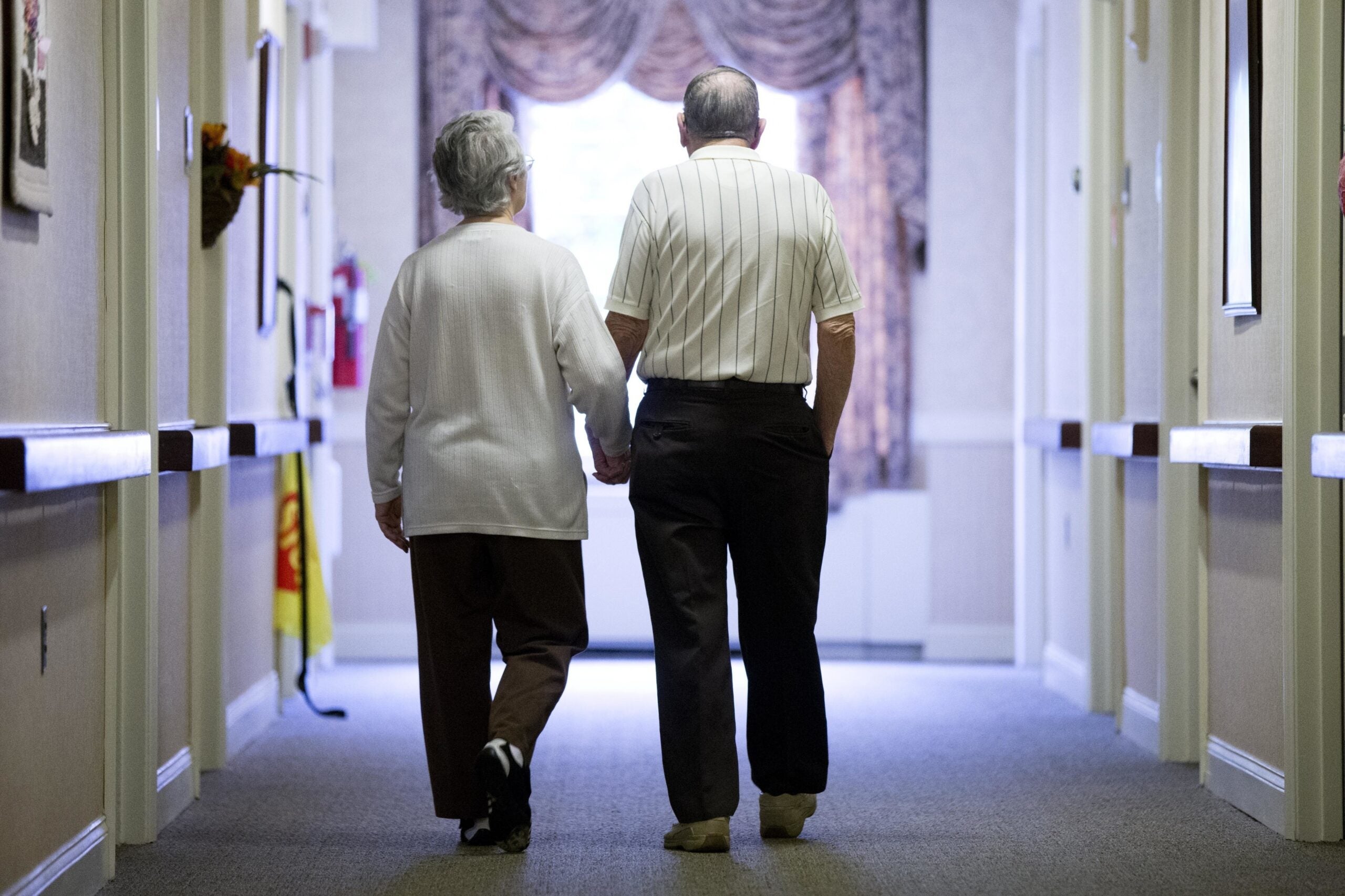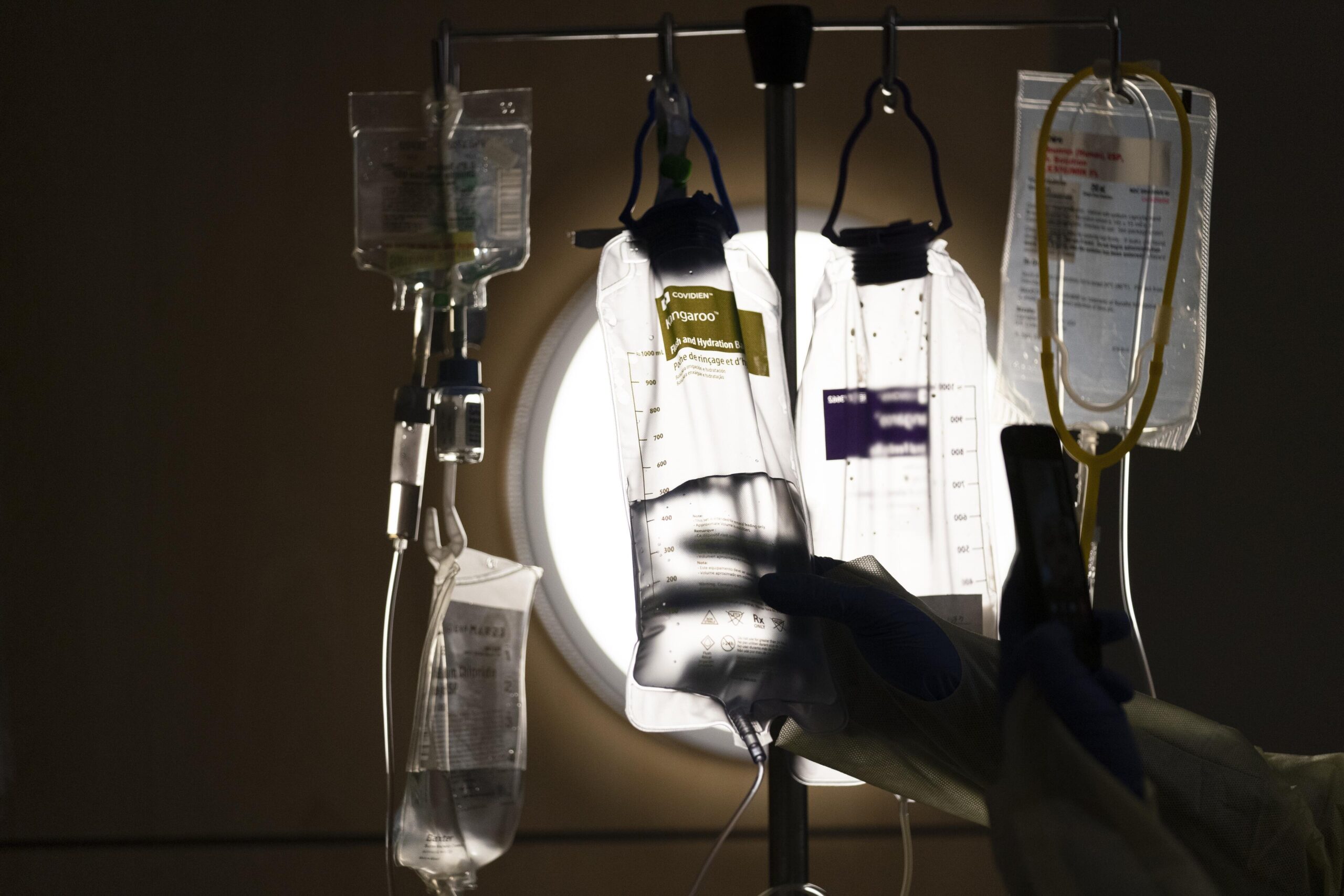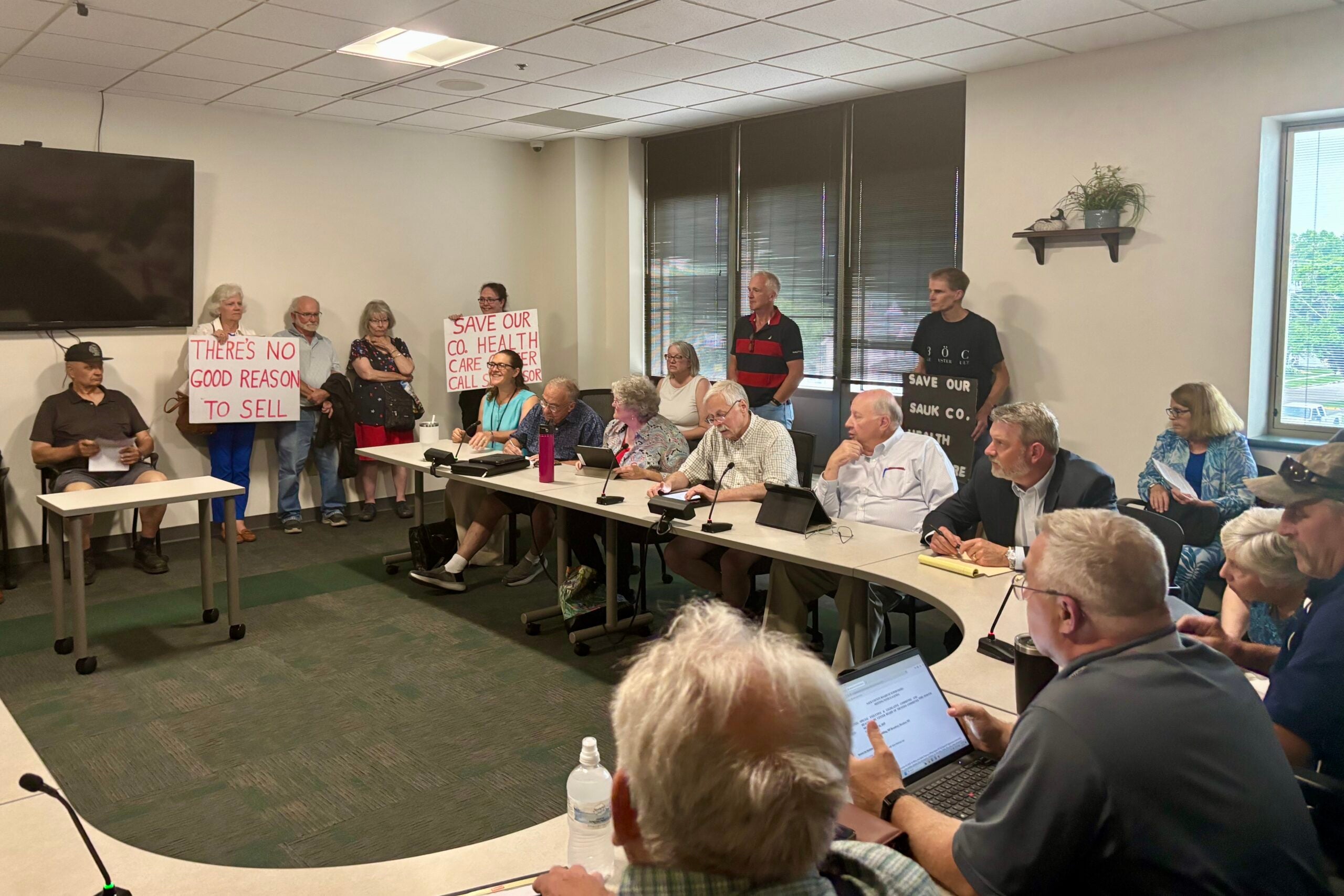This fall, COVID-19 cases spiked on campuses across the country as classes got underway. Now, researchers in La Crosse have linked positive cases on college campuses to nursing home infections and deaths.
The connections were found by matching the genetic fingerprints of COVID-19 between different cases. The findings are described in a new study which looked at whether outbreaks at University of Wisconsin-La Crosse, Viterbo University and Western Technical College affected the larger community.
The study, which has not been formally peer reviewed, tracked 111 positive COVID-19 cases. Genetic sequencing linked most of the nursing home infections to strains of coronavirus circulating on campuses. Those strains were found at three patients in one facility. In another nursing home, two staff members and five patients were infected with the same strain. Two of those patients died.
News with a little more humanity
WPR’s “Wisconsin Today” newsletter keeps you connected to the state you love without feeling overwhelmed. No paywall. No agenda. No corporate filter.
“In many ways, I think what we’ve seen in La Crosse, and what is likely unfolding across the country, is the inevitable consequence of some of these reopening decisions taken by colleges,” said the study’s principal investigator, Dr. Paraic Kenny, who directs the Kabara Cancer Research Institute at the Gundersen Medical Foundation in La Crosse.
Many higher education facilities in La Crosse offer health care degrees, and students often work as certified nursing assistants in long-term care facilities to get experience, he said.
Elizabeth Cogbill is a physician at Gundersen Health System who specializes in geriatrics, and who has patients in the area’s seven nursing homes and in several assisted living facilities. La Crosse County has had 19 coronavirus deaths since the pandemic began, and Cogbill said most were patients at long-term care facilities.
“We are all woven together in this community. All age groups interact with each other, and we need to remember the people in these facilities are grandparents, and parents and siblings and loved ones. So, the choices we make outside in the community truly do have a far-reaching, long-lasting impact on those around us,” Cogbill said.
Kenny cautioned against blaming students for getting together and partying without regard for the potential implication to others.
“It’s very easy to blame them in those scenarios. But we know what students are, and we how students behave. College administrators have known this for a very, very long time. So I think quite a bit of attention should focus on the actual college administrator reopening decisions,” he said.
At three UW System campuses administrators halted in-person classes and quarantined those living in residence halls after a spike in cases shortly after the start of the fall semester. Cases at UW-Madison, UW-La Crosse and UW River Falls have since decreased, allowing the institutions to resume in-person instruction.
UW-Madison peaked Sept. 9 with 290 positive cases, prompting Dane County Executive Joe Parisi to call for university officials to send students home, something university officials said would only increase spread of COVID-19 across the state.
On Tuesday, there were 27 people who tested positive for coronavirus, according to the university’s COVID-19 dashboard.
Recently, UW-Madison announced it plans to have more widespread and more frequent testing for all students in the spring.
As of Thursday, there were 227 active COVID-19 outbreaks at nursing homes across the state. A single case at a nursing home triggers an outbreak investigation.
Wisconsin Public Radio, © Copyright 2025, Board of Regents of the University of Wisconsin System and Wisconsin Educational Communications Board.






